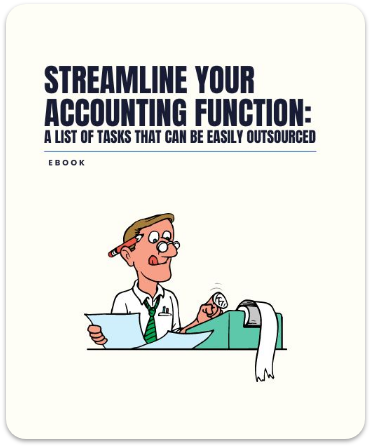Why providing great customer experience is so important for accounting firms?
Introduction:
Delivering an exceptional customer experience in accounting goes beyond the basics of good service; it's about creating a journey that resonates with personalised care and understanding. In a field where trust and accuracy are the cornerstones, how we interact with clients can set us apart.
This approach transforms transactions into meaningful relationships, ensuring clients feel valued, understood, and prioritised. It's a strategy that not only meets but anticipates client needs, fostering a sense of loyalty and satisfaction that transcends the ordinary.
By focusing on these personalised interactions, accounting firms can transform their client relationships to new heights, ensuring they're seen as service providers and indispensable partners in their client's success. This blog explores how such a focus on customer experience can redefine success in the accounting sector, making every client interaction not just a meeting but a memorable experience.
Key takeaways
Good customer service is important for accounting firms because it helps build strong client relationships.
Making things run smoothly and listening to client feedback can make a big difference.
Using technology like e-signatures and document apps can make things easier for both accountants and clients.
Firms that do a great job with customer service tend to do better financially and keep clients happy.
What is customer experience? (And how is it different from customer service?)
Customer experience is how customers perceive and feel about their interactions with your accounting firm across every touchpoint, from initial contact through service delivery to ongoing support. It's a comprehensive approach aimed at not just meeting but exceeding client expectations at every stage of their journey, thereby enhancing satisfaction and loyalty.
Customer service, in contrast, is reactive. It's your firm's support and assistance when clients reach out with a question or an issue. Customer service is designed to "deliver an expected standard when asked," focusing on resolving specific problems to maintain satisfaction but not necessarily aimed at delighting the client.
What's wrong with client experience in the accounting sector today?
The four main obstacles that stand in the way of delivering a satisfactory client experience are:
Building trust takes efforts:
Trust is the foundation of any strong relationship, but it doesn't just happen overnight. It's especially challenging when clients need reassurance that their financial interests are being prioritised. Firms can build trust by being transparent about their processes, consistently delivering on promises, and showing genuine concern for their clients' financial well-being.
Communication gets complicated:
First off, talking about money and numbers can get complicated fast. Clients often get confused and lost when firms throw too much jargon. The trick here is to keep things as simple as possible. By breaking down complex info into bite-sized, easy-to-understand pieces, clients can feel more at ease and in the loop, building trust.
Too many apps, too little time:
Then there's the tech overload. To stay cutting-edge, some firms have introduced so many digital tools and apps that clients feel they need a tech degree to manage their finances. The solution? Streamline. Pick tools that make life easier for clients, not harder. This means choosing technology that integrates smoothly, reducing the need to jump from app to app.
The challenge of timely responses:
Balancing the workload is another hurdle. With accountants handling multiple clients at once, it's easy for response times to lag. This can leave clients feeling neglected and frustrated, potentially harming the relationship. Addressing this challenge involves better time management to ensure clients receive timely and personalised attention, making them feel valued and supported.
Strategic approach to customer experience in accounting firms
Now that you know what customer experience is, let’s discuss some practical strategies for making CX happen in your firm:
In-depth client engagement:
Conduct thorough interviews with your clients to better understand their needs, preferences, and perceptions of your service. This proactive approach allows you to tailor your services more precisely, ensuring you address their specific requirements and exceed their expectations.
Developing a customer service philosophy:
Establish a clear and concise customer service philosophy that outlines how your firm will consistently deliver exceptional service. This should include specific behaviors and practices your team must follow, ensuring that every client interaction aligns with your firm's values and service standards.
Comprehensive training programs:
Accountants love training their team members in technical topics but often lag in soft skills like customer service. To address this, incorporating "Never Lose a Customer Again" by Joey Coleman and "The New Gold Standard" by Joseph Michelli into your team's reading list can be very beneficial. These books provide actionable insights into enhancing customer service and building lasting client relationships.
Customer journey mapping:
Carefully map out the entire customer journey to identify all touchpoints with your firm. This exercise helps pinpoint areas for improvement, ensuring a seamless and positive experience for clients at every stage of their engagement with your firm.

Feedback mechanisms:
Establish structured feedback mechanisms to consistently collect insights from your clients. This ongoing feedback loop underscores your dedication to adjusting your services to align with their changing requirements.
Several valuable customer feedback methods for enhancing customer experience include:
- Email contact forms
- Usability tests
- Surveys
- Social media engagement
- Real-time feedback on your website
- Exploratory interviews
Service standardisation:
Standardise your service delivery processes to ensure consistency and reliability. This approach guarantees that all clients receive the same high level of service, reinforcing your firm's reputation for excellence and dependability.
Role of technology in enhancing customer experience
Accounting firms face challenges with document management, both from their perspective and that of their clients. Clients often find responding to document requests cumbersome, while accountants get frustrated waiting for clients to send the necessary information.
The solution lies in using technology to make these processes smoother and more efficient, allowing firms to focus on delivering value. Here are some technology strategies recommended:
- E-sign software: Eliminates the need for printing, signing, and scanning documents by allowing digital signatures, making the process faster and more convenient for both parties.
- Document collection apps: Facilitates the request and collection of documents from clients, helping track and follow up on missing pieces more efficiently.
- Digital storage: Keeping important documents like trust deeds in digital archives makes them easily accessible, reducing the need to request them from clients repeatedly.
- Automated reminders: Email reminders can help keep both accountants and clients aware of upcoming deadlines and requirements, ensuring nothing falls through the cracks.
Conclusion
Evolving trends in the accounting industry are putting the customer firmly at the center of everything you do. Technology is changing the industry, but is now something of a commodity and an expectation.
Firms that deliver an outstanding Customer Experience will enjoy greater margins, profitability, and customer retention. So please go ahead and implement the strategies in this article and let us know how you go.
And if you’d like to explore how our outsourcing accounting services can help you add more value to clients and deliver an even better Client Experience. Contact us to know more.







